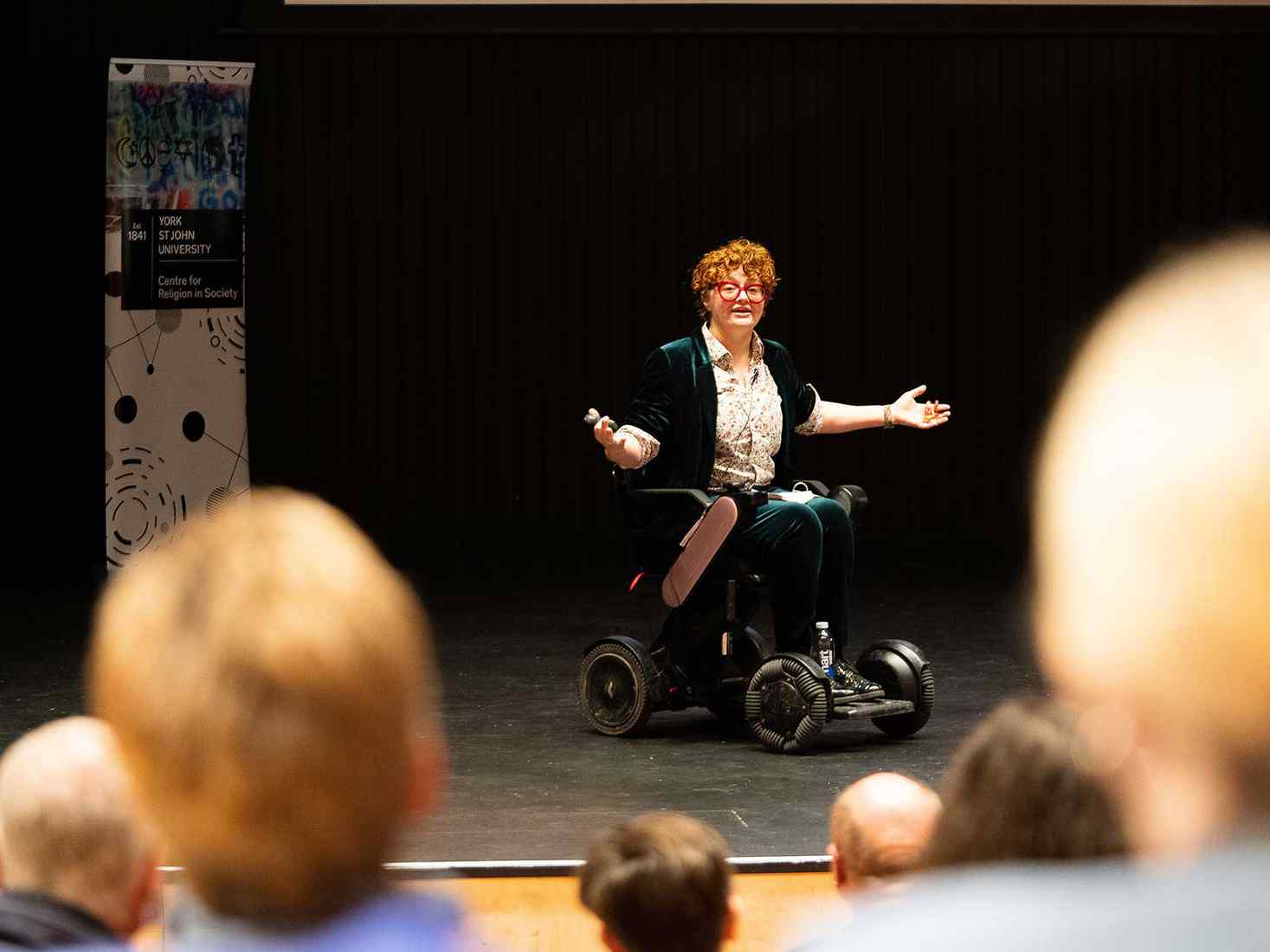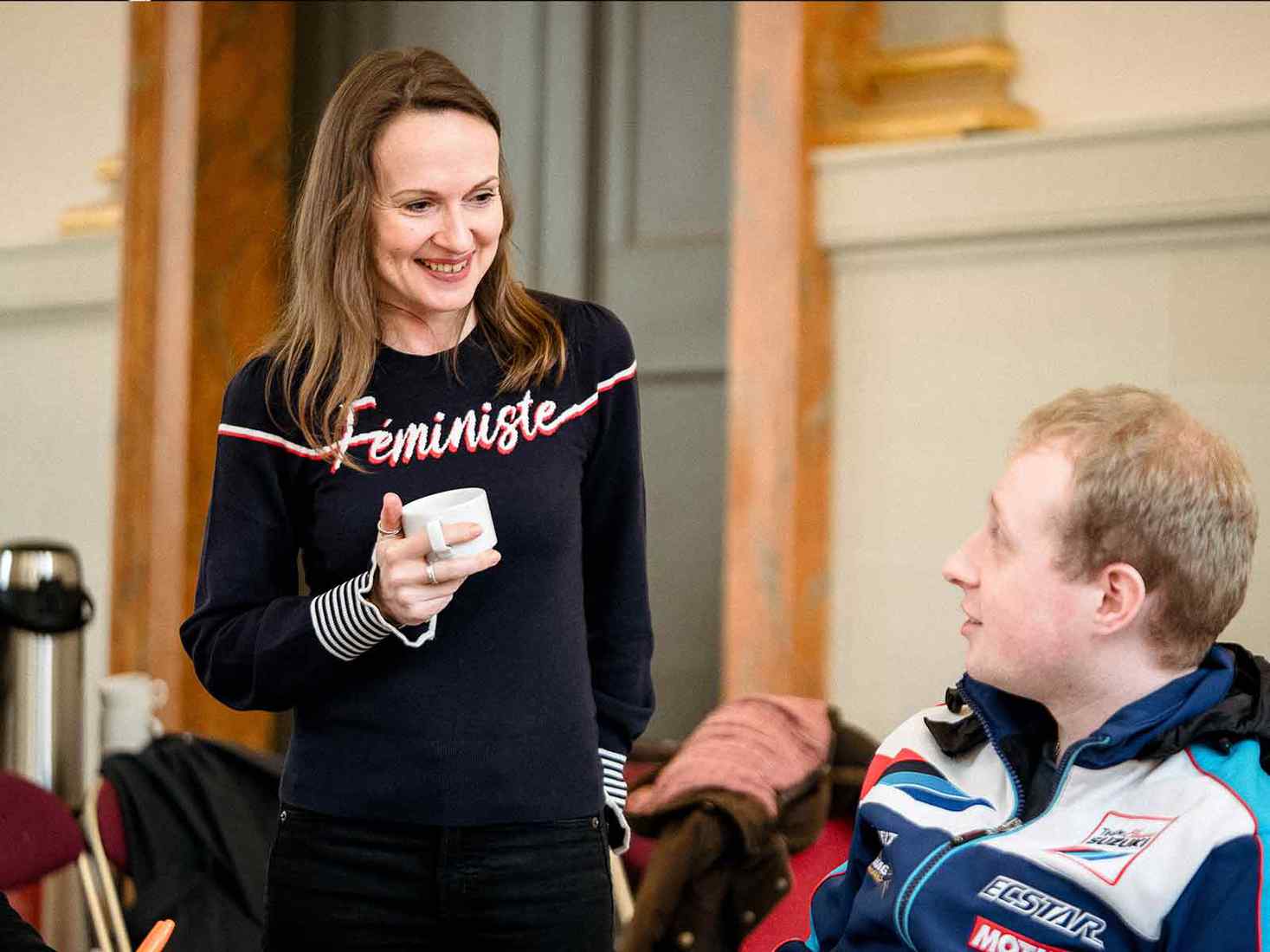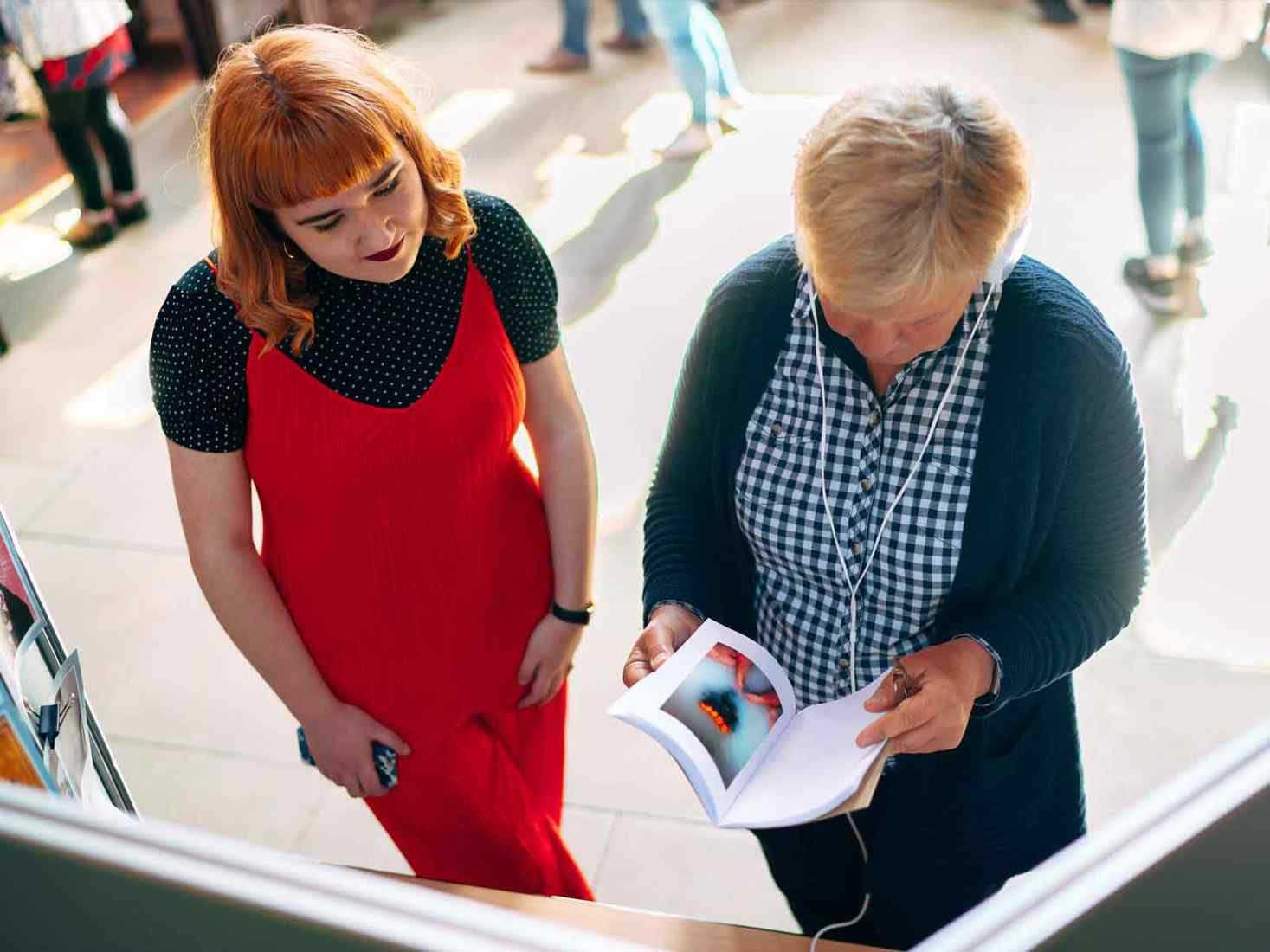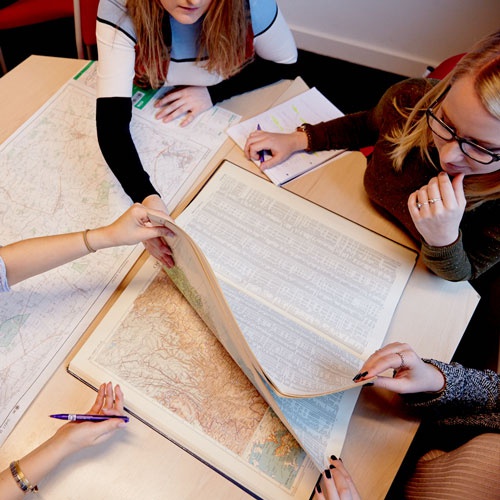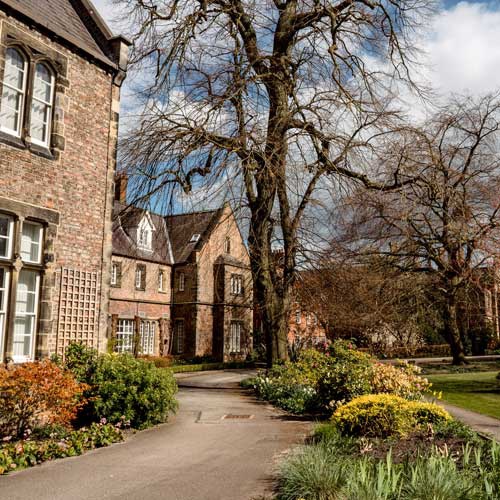Postgraduate Course
Religion in Society MA, PGCert, PGDip
Explore the connections between religion and the big issues facing contemporary society.
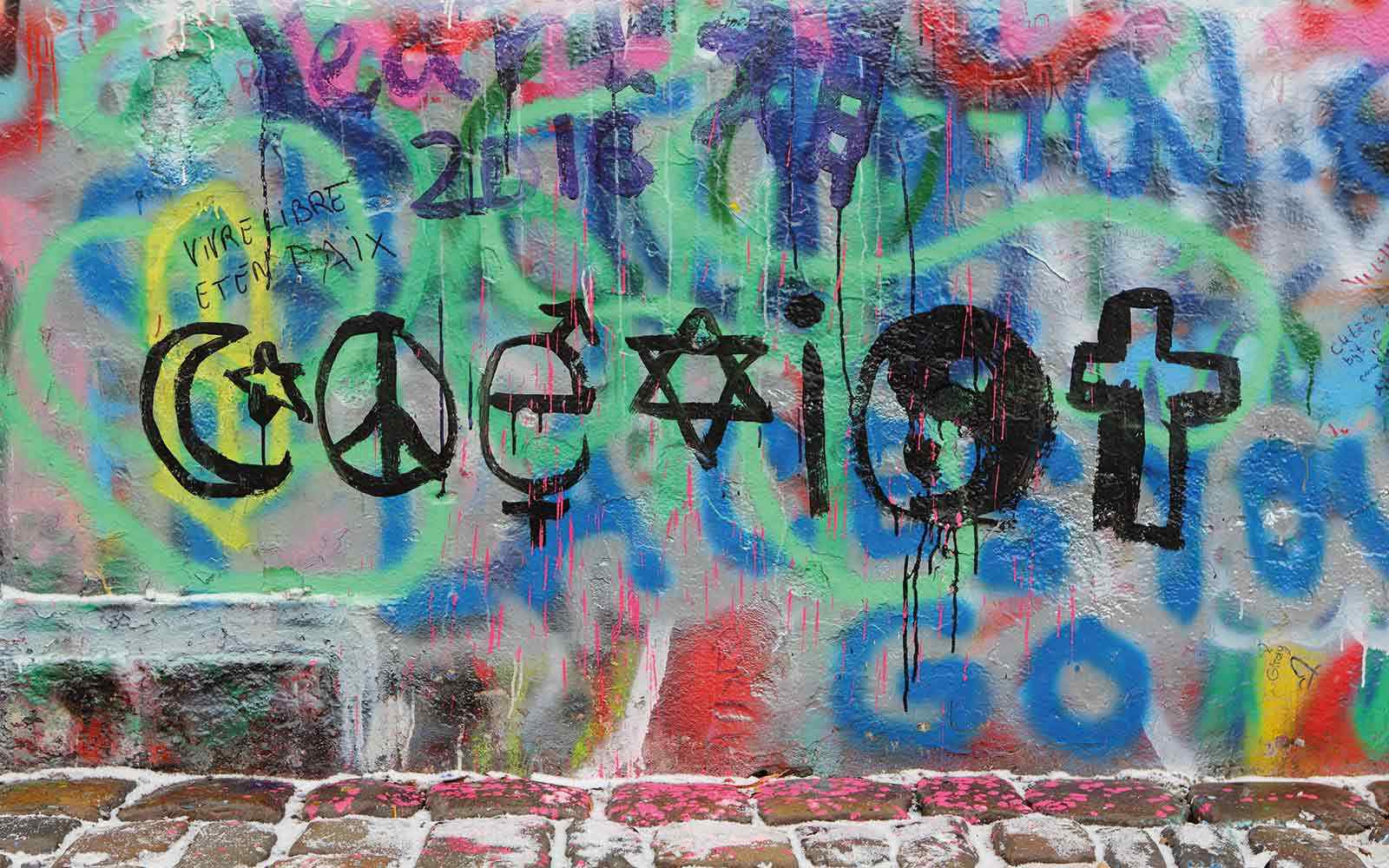
This course emphasizes the importance of understanding the current religious climate. We consider the representation of religion in the media and popular culture, its activity in the public sphere and its significance for identity and wellbeing. You will explore the current role, representation and function of religion in society today.
York campus
- Duration – 1 year full time, 2 years part time
- Start date – September 2024, September 2025
- School – School of Humanities
Minimum entry requirements
2:1 honours degree
Interview You may be invited to interview
Tuition fees
UK 2024-25 £8,000 full time
International 2024-25 £11,300 full time
Discover Religion
Dr Mark Dawson, Course Leader, introduces us to Religion in Society at York St John University.
Course overview
This is a varied and fascinating course taught by experienced, research-active academics. Whether you are motivated by professional development or personal interest, you will develop your research and critical thinking skills.
This course is supported by the Centre for Religion in Society, established in 2008 at York St John University. The Centre is for practitioners and professionals from humanities and social sciences to consider the role of religion in our cultural, social and political life.
This unique, interdisciplinary resource will enrich your learning experience and enhance your religious literacy, your understanding of varieties of spirituality and your awareness of religion as it intersects with current and critical issues in the public sphere locally and globally.
Through this course you will hear from a range of speakers, including researchers, activists and religious practitioners.
Course structure
How you will study
You can study this postgraduate course full time or part time. This allows you to fit your studies around other commitments.
If you choose to study full time the course will take 1 year to complete.
You will study:
- 1 compulsory module
- 3 optional modules (MA and PgDip) or 1 optional module (PgCert)
- 1 additional compulsory module (MA only)
If you choose to study part time the course will take 2 years to complete and the modules will be split across both years.
You can find out which modules are available in each term in the Course Specifications.
Optional modules will run if they receive enough interest. It is not guaranteed that all modules will run every year.
Modules
Credits: 30
Compulsory module
This module is compulsory within the PGCert, PG Dip and MA courses, allowing you to gain a firm foundation in the study of religion. You will explore the changing relationship between religion and society across contemporary and historical settings. You will also develop essential techniques and methods in the study of religion, so that you will become a skilled researcher in the discipline. You will build these skills through engagement with the Centre for Religion in Society and its flagship Ebor Lecture series.
Credits: 30
Optional module
The relationship between religious worldviews and ethical life is a central part of many current debates concerning the role of religion in society. Philosophers continue to discuss the legacy of concepts which have their roots in religious traditions, for example the concepts of sanctity, mystery and sacrifice. Studying this module involves the conceptual exploration of issues at the intersection between religion and ethics, through an examination of the concept of "the good life". You will be introduced to the complex ways that philosophical and religious thinkers have influenced how we think about good and evil in human life.
Credits: 30
Optional module
Gender and sexuality have long been debated by feminist scholars, and these themes are pervasive in current public debates concerning trans rights and non-binary status. Sexuality has long been a sticking point for faith groups, with women’s rights and same-sex marriage coming into conflict with religious hierarchies, doctrines and traditions. You will explore the intersection of feminist philosophy, theology and ethics.
Credits: 30
Optional module
Governmental and healthcare bodies are increasingly mandating over spiritual health and spiritual needs. Healthcare and other professions find themselves obliged to address spiritual rights within a public context. This has led to competing notions of the spiritual, some religious and others secular. It has also led to uncertainty amongst professions and religious practitioners as to how to best meet these requirements, especially in the face of tensions between the private and public face of spirituality and its relationship to religion. Spirituality is now a key component in the contemporary discussion of the place of religion within society.
Credits: 30
Optional module
Popular culture, in its many forms, offers a relevant and dynamic focus for studying religion and emerging spiritualities. Many religious organisations also now recognise the value of using popular culture to express their beliefs and practices. One significant aspect of the interface between religion and popular culture is digital media, both inside and outside of established religions. It is increasingly dominating personal and public spaces as the mediator of mainstream media, cultural outputs and popular opinion. By exploring the intersections between religion and popular culture you will encounter additional interdisciplinary methods and perspectives for the study of religion in society.
Credits: 30
Optional module
On this module you will explore the ways in which religion can build peace in contemporary societies. Religion can be the cause of conflict and it can be the cause of peace. Numerous examples across the world show the important contribution that faith based approaches to peace-making are having, especially at a grassroots level in promoting peace and reconciliation.
Credits: 30
Optional module
The public nature of religion has been considered in recent years as a way for religious communities to participate in the public domain and to converse with citizens on issues wider than religious matters. On this module you will address key concepts, including the public sphere and public conversation. The public face of religion is increasingly contributing to the formation of personal decisions and collective policy making in economic, political, religious and social realms. You will explore this important area within the discipline and in which the department has a particular expertise.
Credits: 30
Optional module
On this module you will study, prior to your dissertation, a specific topic that interests you in the field of religion in society. You may have particular interests that are not covered by the taught modules available to you and you may wish to pursue class based teaching sessions. This will allow you to pursue your interest through supervised guided reading and independent study. Such study requires that you are able to work with a high level of self motivation and independence. The aim is for you to meet regularly with a tutor, who will guide topical reading and the answering of a set essay question.
Credits: 60
Compulsory module
On this module you will write a substantial dissertation based on independent postgraduate-level research in a specific area of concern for religion in society. Through writing your dissertation you will demonstrate the accumulated independent research and writing skills you will have gained on the course. Skills acquired in research, critical analysis and written expression are consolidated and demonstrated by the dissertation.
Teaching and assessment
Teaching and learning
Your modules will be delivered using a variety of different teaching and learning approaches. You will engage critically with the theory and practice of religion in society today by getting involved with the Ebor lectures and writing blog entries for the Centre for Religion in Society (CRiS).
The culmination of the MA is the dissertation module, an independent research module which will be supervised by a tutor with knowledge in the subject area. Teaching on the dissertation is through in-depth individual tutoring, accompanied by personal reflection.
Our teaching draws on both our research and professional experience. This means your learning is informed by the most current thinking in the subject area. You can find out more about our research and backgrounds by visiting our staff pages.
Assessment
Assessment strategies are designed to develop independent research skills, the ability to structure and write a sophisticated critical essay, and to provide the opportunity to pursue your own intellectual interests.
Assessment methods may include:
- Essays
- Dissertations
- Annotated bibliographies
- Blog entries
- Presentations
Entry requirements
Qualifications
Minimum entry requirements
2:1 honours degree
Interview You may be invited to interview
We welcome applicants with academic backgrounds from across humanities and social sciences. Some previous students have studied Religion, Philosophy or Theology at undergraduate level, while others have previously specialised in areas such as Sociology, Geography or Politics, or have relevant professional experience to support their application.
International students
If you are an international student you will need to show that your qualifications match our entry requirements.
Information about international qualifications and entry requirements can be found on our International pages.
If English is not your first language you will need to show that you have English Language competence at IELTS level 6.0 (with no skill below 5.5) or equivalent.
Accreditation of Prior Experiential Learning (APEL)
If you do not have traditional qualifications, you might be able to provide evidence of professional experience in the subject as an alternative way to meet the entry requirements. This is called Accreditation of Prior Experiential Learning (APEL). Appropriate references and records of employment would need to be presented to support your case for admission.
Terms and conditions
Our terms and conditions, policies and procedures contain important information about studying at York St John University. You can read them on our Admissions page.
Fees and funding
UK 2024 - 2025 entry
The tuition fee for 2024 entry to this postgraduate course is:
- £8,000 for full time study
- £4,000 per year for part time study
These costs apply to all UK, Jersey, Guernsey and Isle of Man students.
Postgraduate loans are available to help you pay for your master’s course. Find out more about funding your postgraduate studies.
International 2024 - 2025 entry
The tuition fee for 2024 entry to this postgraduate course is:
- £11,300 for 1 year of full time study
- £5,650 per year for part time study
These costs apply to all students living outside the UK.
Due to immigration laws, if you are an international student on a student visa, you must study full time. For more information about visa requirements and short-term study visas, please visit the International Visa and Immigration pages.
Find out more about funding your postgraduate studies.
Tuition fees
UK 2024-25 £8,000 full time
International 2024-25 £11,300 full time
Alumni Scholarships
If you are alumni of York St John University we have scholarships available to help you continue your studies.
Additional costs and financial support
Course-related costs
While studying for your degree, there may be additional costs related to your course. This may include purchasing personal equipment and stationery, books and optional field trips.
Accommodation and living costs
View our accommodation pages for detailed information on accommodation and living costs.
Career outcomes
Where could Religion in Society take you?
This postgraduate degree could lead you to a career directly related to religion, or it could take you in a completely different direction, using the many transferrable skills you will develop.
This will give you an advantage for a career in:
- Ministry
- Interfaith work
- Teaching
- Social services
- Charity and community projects
- Youth work
Stand out from the crowd with postgraduate study.
Far fewer people have postgraduate degrees than undergraduate qualifications. This gives you something extra to set yourself apart in a competitive graduate job market. Those with a postgraduate qualification will earn an average of £7,000 a year more than those with only an undergraduate degree. (Department For Education Graduate Labour Market Report 2020)
Our careers service, LaunchPad, provides career support tailored to your ambitions. Through this service you can access:
- Employer events
- LinkedIn, CV and cover letter sessions
- Workshops on application writing and interview skills
- Work experience and volunteering opportunities
- Personalised career advice
This support does not end when you graduate. You can access our expert career advice for the rest of your life. We will help you gain the experience and confidence you need to succeed.
Course highlights
The Centre for Religion in Society
The Centre for Religion in Society was established in 2008 for practitioners and professionals from across the humanities and social sciences to consider the role of religion in our cultural, social and political life.
Access to experts
You will have access to a range of professional speakers, including researchers, activists and religious practitioners.
More than a degree
Present your work at our Postgraduate Research Conference, help organise events within your school and join our thriving research community. We help take your learning to the next level.
Sarah Religion in Society MA
I have thoroughly enjoyed the Religion in Society MA. It has challenged my perceptions about how people view religion. The course has such a breadth of topics but I was able to focus on specific areas that I am interested in.
